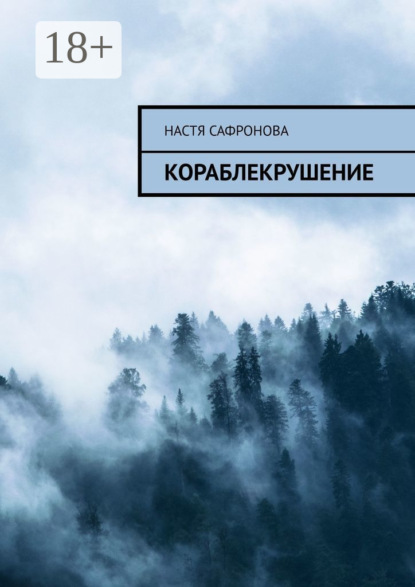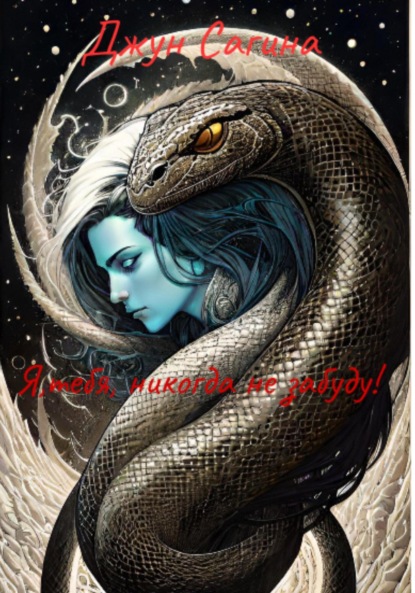- -
- 100%
- +
force of the foe. Fain, too, were I
hadst thou but seen himself, what time
the fiend in his trappings tottered to fall!
Swiftly, I thought, in strongest gripe
on his bed of death to bind him down,
that he in the hent of this hand of mine
should breathe his last: but he broke away.
Him I might not – the Maker willed not —
hinder from flight, and firm enough hold
the life-destroyer: too sturdy was he,
the ruthless, in running! For rescue, however,
he left behind him his hand in pledge,
arm and shoulder; nor aught of help
could the cursed one thus procure at all.
None the longer liveth he, loathsome fiend,
sunk in his sins, but sorrow holds him
tightly grasped in gripe of anguish,
in baleful bonds, where bide he must,
evil outlaw, such awful doom
as the Mighty Maker shall mete him out.»
More silent seemed the son of Ecglaf
in boastful speech of his battle-deeds,
since athelings all, through the earl’s great prowess,
beheld that hand, on the high roof gazing,
foeman’s fingers, – the forepart of each
of the sturdy nails to steel was likest, —
heathen’s «hand-spear,» hostile warrior’s
claw uncanny. «Twas clear, they said,
that him no blade of the brave could touch,
how keen soever, or cut away
that battle-hand bloody from baneful foe.
THERE was hurry and hest in Heorot now
for hands to bedeck it, and dense was the throng
of men and women the wine-hall to cleanse,
the guest-room to garnish. Gold-gay shone the hangings
that were wove on the wall, and wonders many
to delight each mortal that looks upon them.
Though braced within by iron bands,
that building bright was broken sorely;
rent were its hinges; the roof alone
held safe and sound, when, seared with crime,
the fiendish foe his flight essayed,
of life despairing. – No light thing that,
the flight for safety, – essay it who will!
Forced of fate, he shall find his way
to the refuge ready for race of man,
for soul-possessors, and sons of earth;
and there his body on bed of death
shall rest after revel. Arrived was the hour
when to hall proceeded Healfdene’s son:
the king himself would sit to banquet.
Ne’er heard I of host in haughtier throng
more graciously gathered round giver-of-rings!
Bowed then to bench those bearers-of-glory,
fain of the feasting. Featly received
many a mead-cup the mighty-in-spirit,
kinsmen who sat in the sumptuous hall,
Hrothgar and Hrothulf. Heorot now
was filled with friends; the folk of Scyldings
ne’er yet had tried the traitor’s deed.
To Beowulf gave the bairn of Healfdene
a gold-wove banner, guerdon of triumph,
broidered battle-flag, breastplate and helmet;
and a splendid sword was seen of many
borne to the brave one. Beowulf took
cup in hall: for such costly gifts
he suffered no shame in that soldier throng.
For I heard of few heroes, in heartier mood,
with four such gifts, so fashioned with gold,
on the ale-bench honoring others thus!
O’er the roof of the helmet high, a ridge,
wound with wires, kept ward o’er the head,
lest the relict-of-files should fierce invade,
sharp in the strife, when that shielded hero
should go to grapple against his foes.
Then the earls’-defence on the floor bade lead
coursers eight, with carven head-gear,
adown the hall: one horse was decked
with a saddle all shining and set in jewels;
«twas the battle-seat of the best of kings,
when to play of swords the son of Healfdene
was fain to fare. Ne’er failed his valor
in the crush of combat when corpses fell.
To Beowulf over them both then gave
the refuge-of-Ingwines right and power,
o’er war-steeds and weapons: wished him joy of them.
Manfully thus the mighty prince,
hoard-guard for heroes, that hard fight repaid
with steeds and treasures contemned by none
who is willing to say the sooth aright.
AND the lord of earls, to each that came
with Beowulf over the briny ways,
an heirloom there at the ale-bench gave,
precious gift; and the price bade pay
in gold for him whom Grendel erst
murdered, – and fain of them more had killed,
had not wisest God their Wyrd averted,
and the man’s brave mood. The Maker then
ruled human kind, as here and now.
Therefore is insight always best,
and forethought of mind. How much awaits him
of lief and of loath, who long time here,
through days of warfare this world endures!
Then song and music mingled sounds
in the presence of Healfdene’s head-of-armies
and harping was heard with the hero-lay
as Hrothgar’s singer the hall-joy woke
along the mead-seats, making his song
of that sudden raid on the sons of Finn.
Healfdene’s hero, Hnaef the Scylding,
was fated to fall in the Frisian slaughter.
Hildeburh needed not hold in value
her enemies’ honor! Innocent both
were the loved ones she lost at the linden-play,
bairn and brother, they bowed to fate,
stricken by spears; «twas a sorrowful woman!
None doubted why the daughter of Hoc
bewailed her doom when dawning came,
and under the sky she saw them lying,
kinsmen murdered, where most she had kenned
of the sweets of the world! By war were swept, too,
Finn’s own liegemen, and few were left;
in the parleying-place he could ply no longer
weapon, nor war could he wage on Hengest,
and rescue his remnant by right of arms
from the prince’s thane. A pact he offered:
another dwelling the Danes should have,
hall and high-seat, and half the power
should fall to them in Frisian land;
and at the fee-gifts, Folcwald’s son
day by day the Danes should honor,
the folk of Hengest favor with rings,
even as truly, with treasure and jewels,
with fretted gold, as his Frisian kin
he meant to honor in ale-hall there.
Pact of peace they plighted further
on both sides firmly. Finn to Hengest
with oath, upon honor, openly promised
that woful remnant, with wise-men’s aid,
nobly to govern, so none of the guests
by word or work should warp the treaty,
or with malice of mind bemoan themselves
as forced to follow their fee-giver’s slayer,
lordless men, as their lot ordained.
Should Frisian, moreover, with foeman’s taunt,
that murderous hatred to mind recall,
then edge of the sword must seal his doom.
Oaths were given, and ancient gold
heaped from hoard. – The hardy Scylding,
battle-thane best, on his balefire lay.
All on the pyre were plain to see
the gory sark, the gilded swine-crest,
boar of hard iron, and athelings many
slain by the sword: at the slaughter they fell.
It was Hildeburh’s hest, at Hnaef’s own pyre
the bairn of her body on brands to lay,
his bones to burn, on the balefire placed,
at his uncle’s side. In sorrowful dirges
bewept them the woman: great wailing ascended.
Then wound up to welkin the wildest of death-fires,
roared o’er the hillock: heads all were melted,
gashes burst, and blood gushed out
from bites of the body. Balefire devoured,
greediest spirit, those spared not by war
out of either folk: their flower was gone.
Then hastened those heroes their home to see,
friendless, to find the Frisian land,
houses and high burg. Hengest still
through the death-dyed winter dwelt with Finn,
holding pact, yet of home he minded,
though powerless his ring-decked prow to drive
over the waters, now waves rolled fierce
lashed by the winds, or winter locked them
in icy fetters. Then fared another
year to men’s dwellings, as yet they do,
the sunbright skies, that their season ever
duly await. Far off winter was driven;
fair lay earth’s breast; and fain was the rover,
the guest, to depart, though more gladly he pondered
on wreaking his vengeance than roaming the deep,
and how to hasten the hot encounter
where sons of the Frisians were sure to be.
So he escaped not the common doom,
when Hun with «Lafing,» the light-of-battle,
best of blades, his bosom pierced:
its edge was famed with the Frisian earls.
On fierce-heart Finn there fell likewise,
on himself at home, the horrid sword-death;
for Guthlaf and Oslaf of grim attack
had sorrowing told, from sea-ways landed,
mourning their woes. Finn’s wavering spirit
bode not in breast. The burg was reddened
with blood of foemen, and Finn was slain,
king amid clansmen; the queen was taken.
To their ship the Scylding warriors bore
all the chattels the chieftain owned,
whatever they found in Finn’s domain
of gems and jewels. The gentle wife
o’er paths of the deep to the Danes they bore,
led to her land. The lay was finished,
the gleeman’s song. Then glad rose the revel;
bench-joy brightened. Bearers draw
from their «wonder-vats» wine. Comes Wealhtheow forth,
under gold-crown goes where the good pair sit,
uncle and nephew, true each to the other one,
kindred in amity. Unferth the spokesman
at the Scylding lord’s feet sat: men had faith in his spirit,
his keenness of courage, though kinsmen had found him
unsure at the sword-play. The Scylding queen spoke:
«Quaff of this cup, my king and lord,
breaker of rings, and blithe be thou,
gold-friend of men; to the Geats here speak
such words of mildness as man should use.
Be glad with thy Geats; of those gifts be mindful,
or near or far, which now thou hast.
Men say to me, as son thou wishest
yon hero to hold. Thy Heorot purged,
jewel-hall brightest, enjoy while thou canst,
with many a largess; and leave to thy kin
folk and realm when forth thou goest
to greet thy doom. For gracious I deem
my Hrothulf, willing to hold and rule
nobly our youths, if thou yield up first,
prince of Scyldings, thy part in the world.
I ween with good he will well requite
offspring of ours, when all he minds
that for him we did in his helpless days
of gift and grace to gain him honor!»
Then she turned to the seat where her sons were placed,
Hrethric and Hrothmund, with heroes’ bairns,
young men together: the Geat, too, sat there,
Beowulf brave, the brothers between.
A cup she gave him, with kindly greeting
and winsome words. Of wounden gold,
she offered, to honor him, arm-jewels twain,
corselet and rings, and of collars the noblest
that ever I knew the earth around.
Ne’er heard I so mighty, «neath heaven’s dome,
a hoard-gem of heroes, since Hama bore
to his bright-built burg the Brisings’ necklace,
jewel and gem casket. – Jealousy fled he,
Eormenric’s hate: chose help eternal.
Hygelac Geat, grandson of Swerting,
on the last of his raids this ring bore with him,
under his banner the booty defending,
the war-spoil warding; but Wyrd o’erwhelmed him
what time, in his daring, dangers he sought,
feud with Frisians. Fairest of gems
he bore with him over the beaker-of-waves,
sovran strong: under shield he died.
Fell the corpse of the king into keeping of Franks,
gear of the breast, and that gorgeous ring;
weaker warriors won the spoil,
after gripe of battle, from Geatland’s lord,
and held the death-field. Din rose in hall.
Wealhtheow spake amid warriors, and said:—
«This jewel enjoy in thy jocund youth,
Beowulf lov’d, these battle-weeds wear,
a royal treasure, and richly thrive!
Preserve thy strength, and these striplings here
counsel in kindness: requital be mine.
Hast done such deeds, that for days to come
thou art famed among folk both far and near,
so wide as washeth the wave of Ocean
his windy walls. Through the ways of life
prosper, O prince! I pray for thee
rich possessions. To son of mine
be helpful in deed and uphold his joys!
Here every earl to the other is true,
mild of mood, to the master loyal!
Thanes are friendly, the throng obedient,
liegemen are revelling: list and obey!»
Went then to her place. – That was proudest of feasts;
flowed wine for the warriors. Wyrd they knew not,
destiny dire, and the doom to be seen
by many an earl when eve should come,
and Hrothgar homeward hasten away,
royal, to rest. The room was guarded
by an army of earls, as erst was done.
They bared the bench-boards; abroad they spread
beds and bolsters. – One beer-carouser
in danger of doom lay down in the hall. —
At their heads they set their shields of war,
bucklers bright; on the bench were there
over each atheling, easy to see,
the high battle-helmet, the haughty spear,
the corselet of rings. «Twas their custom so
ever to be for battle prepared,
at home, or harrying, which it were,
even as oft as evil threatened
their sovran king. – They were clansmen good.
THEN sank they to sleep. With sorrow one bought
his rest of the evening, – as ofttime had happened
when Grendel guarded that golden hall,
evil wrought, till his end drew nigh,
slaughter for sins. «Twas seen and told
how an avenger survived the fiend,
as was learned afar. The livelong time
after that grim fight, Grendel’s mother,
monster of women, mourned her woe.
She was doomed to dwell in the dreary waters,
cold sea-courses, since Cain cut down
with edge of the sword his only brother,
his father’s offspring: outlawed he fled,
marked with murder, from men’s delights
warded the wilds. – There woke from him
such fate-sent ghosts as Grendel, who,
war-wolf horrid, at Heorot found
a warrior watching and waiting the fray,
with whom the grisly one grappled amain.
But the man remembered his mighty power,
the glorious gift that God had sent him,
in his Maker’s mercy put his trust
for comfort and help: so he conquered the foe,
felled the fiend, who fled abject,
reft of joy, to the realms of death,
mankind’s foe. And his mother now,
gloomy and grim, would go that quest
of sorrow, the death of her son to avenge.
To Heorot came she, where helmeted Danes
slept in the hall. Too soon came back
old ills of the earls, when in she burst,
the mother of Grendel. Less grim, though, that terror,
e’en as terror of woman in war is less,
might of maid, than of men in arms
when, hammer-forged, the falchion hard,
sword gore-stained, through swine of the helm,
crested, with keen blade carves amain.
Then was in hall the hard-edge drawn,
the swords on the settles, and shields a-many
firm held in hand: nor helmet minded
nor harness of mail, whom that horror seized.
Haste was hers; she would hie afar
and save her life when the liegemen saw her.
Yet a single atheling up she seized
fast and firm, as she fled to the moor.
He was for Hrothgar of heroes the dearest,
of trusty vassals betwixt the seas,
whom she killed on his couch, a clansman famous,
in battle brave. – Nor was Beowulf there;
another house had been held apart,
after giving of gold, for the Geat renowned. —
Uproar filled Heorot; the hand all had viewed,
blood-flecked, she bore with her; bale was returned,
dole in the dwellings: «twas dire exchange
where Dane and Geat were doomed to give
the lives of loved ones. Long-tried king,
the hoary hero, at heart was sad
when he knew his noble no more lived,
and dead indeed was his dearest thane.
To his bower was Beowulf brought in haste,
dauntless victor. As daylight broke,
along with his earls the atheling lord,
with his clansmen, came where the king abode
waiting to see if the Wielder-of-All
would turn this tale of trouble and woe.
Strode o’er floor the famed-in-strife,
with his hand-companions, – the hall resounded, —
wishing to greet the wise old king,
Ingwines’ lord; he asked if the night
had passed in peace to the prince’s mind.
HROTHGAR spake, helmet-of-Scyldings:—
«Ask not of pleasure! Pain is renewed
to Danish folk. Dead is Aeschere,
of Yrmenlaf the elder brother,
my sage adviser and stay in council,
shoulder-comrade in stress of fight
when warriors clashed and we warded our heads,
hewed the helm-boars; hero famed
should be every earl as Aeschere was!
But here in Heorot a hand hath slain him
of wandering death-sprite. I wot not whither,
proud of the prey, her path she took,
fain of her fill. The feud she avenged
that yesternight, unyieldingly,
Grendel in grimmest grasp thou killedst, —
seeing how long these liegemen mine
he ruined and ravaged. Reft of life,
in arms he fell. Now another comes,
keen and cruel, her kin to avenge,
faring far in feud of blood
so that many a thane shall think, who e’er
sorrows in soul for that sharer of rings,
this is hardest of heart-bales. The hand lies low
that once was willing each wish to please.
Land-dwellers here and liegemen mine,
who house by those parts, I have heard relate
that such a pair they have sometimes seen,
march-stalkers mighty the moorland haunting,
wandering spirits: one of them seemed,
so far as my folk could fairly judge,
of womankind; and one, accursed,
in man’s guise trod the misery-track
of exile, though huger than human bulk.
Grendel in days long gone they named him,
folk of the land; his father they knew not,
nor any brood that was born to him
of treacherous spirits. Untrod is their home;
by wolf-cliffs haunt they and windy headlands,
fenways fearful, where flows the stream
from mountains gliding to gloom of the rocks,
underground flood. Not far is it hence
in measure of miles that the mere expands,
and o’er it the frost-bound forest hanging,
sturdily rooted, shadows the wave.
By night is a wonder weird to see,
fire on the waters. So wise lived none
of the sons of men, to search those depths!
Nay, though the heath-rover, harried by dogs,
the horn-proud hart, this holt should seek,
long distance driven, his dear life first
on the brink he yields ere he brave the plunge
to hide his head: «tis no happy place!
Thence the welter of waters washes up
wan to welkin when winds bestir
evil storms, and air grows dusk,
and the heavens weep. Now is help once more
with thee alone! The land thou knowst not,
place of fear, where thou findest out
that sin-flecked being. Seek if thou dare!
I will reward thee, for waging this fight,
with ancient treasure, as erst I did,
with winding gold, if thou winnest back.»
Beowulf F spake, bairn of Ecgtheow:
«Sorrow not, sage! It beseems us better
friends to avenge than fruitlessly mourn them.
Each of us all must his end abide
in the ways of the world; so win who may
glory ere death! When his days are told,
that is the warrior’s worthiest doom.
Rise, O realm-warder! Ride we anon,
and mark the trail of the mother of Grendel.
No harbor shall hide her – heed my promise! —
enfolding of field or forested mountain
or floor of the flood, let her flee where she will!
But thou this day endure in patience,
as I ween thou wilt, thy woes each one.»
Leaped up the graybeard: God he thanked,
mighty Lord, for the man’s brave words.
For Hrothgar soon a horse was saddled
wave-maned steed. The sovran wise
stately rode on; his shield-armed men
followed in force. The footprints led
along the woodland, widely seen,
a path o’er the plain, where she passed, and trod
the murky moor; of men-at-arms
she bore the bravest and best one, dead,
him who with Hrothgar the homestead ruled.
On then went the atheling-born
o’er stone-cliffs steep and strait defiles,
narrow passes and unknown ways,
headlands sheer, and the haunts of the Nicors.
Foremost he fared, a few at his side
of the wiser men, the ways to scan,
till he found in a flash the forested hill
hanging over the hoary rock,
a woful wood: the waves below
were dyed in blood. The Danish men
had sorrow of soul, and for Scyldings all,
for many a hero, «twas hard to bear,
ill for earls, when Aeschere’s head
they found by the flood on the foreland there.
Waves were welling, the warriors saw,
hot with blood; but the horn sang oft
battle-song bold. The band sat down,
and watched on the water worm-like things,
sea-dragons strange that sounded the deep,
and nicors that lay on the ledge of the ness —
such as oft essay at hour of morn
on the road-of-sails their ruthless quest, —
and sea-snakes and monsters. These started away,
swollen and savage that song to hear,
that war-horn’s blast. The warden of Geats,
with bolt from bow, then balked of life,
of wave-work, one monster, amid its heart
went the keen war-shaft; in water it seemed
less doughty in swimming whom death had seized.
Swift on the billows, with boar-spears well
hooked and barbed, it was hard beset,
done to death and dragged on the headland,
wave-roamer wondrous. Warriors viewed
the grisly guest. Then girt him Beowulf
in martial mail, nor mourned for his life.
His breastplate broad and bright of hues,
woven by hand, should the waters try;
well could it ward the warrior’s body
that battle should break on his breast in vain
nor harm his heart by the hand of a foe.
And the helmet white that his head protected
was destined to dare the deeps of the flood,
through wave-whirl win: «twas wound with chains,
decked with gold, as in days of yore
the weapon-smith worked it wondrously,
with swine-forms set it, that swords nowise,
brandished in battle, could bite that helm.
Nor was that the meanest of mighty helps
which Hrothgar’s orator offered at need:
«Hrunting» they named the hilted sword,
of old-time heirlooms easily first;
iron was its edge, all etched with poison,
with battle-blood hardened, nor blenched it at fight
in hero’s hand who held it ever,
on paths of peril prepared to go
to folkstead of foes. Not first time this
it was destined to do a daring task.
For he bore not in mind, the bairn of Ecglaf
sturdy and strong, that speech he had made,
drunk with wine, now this weapon he lent
to a stouter swordsman. Himself, though, durst not
under welter of waters wager his life
as loyal liegeman. So lost he his glory,
honor of earls. With the other not so,
who girded him now for the grim encounter.
BEOWULF spake, bairn of Ecgtheow:—
«Have mind, thou honored offspring of Healfdene
gold-friend of men, now I go on this quest,
sovran wise, what once was said:
if in thy cause it came that I
should lose my life, thou wouldst loyal bide
to me, though fallen, in father’s place!
Be guardian, thou, to this group of my thanes,
my warrior-friends, if War should seize me;
and the goodly gifts thou gavest me,
Hrothgar beloved, to Hygelac send!
Geatland’s king may ken by the gold,
Hrethel’s son see, when he stares at the treasure,
that I got me a friend for goodness famed,
and joyed while I could in my jewel-bestower.
And let Unferth wield this wondrous sword,
earl far-honored, this heirloom precious,
hard of edge: with Hrunting I
seek doom of glory, or Death shall take me.»
After these words the Weder-Geat lord






